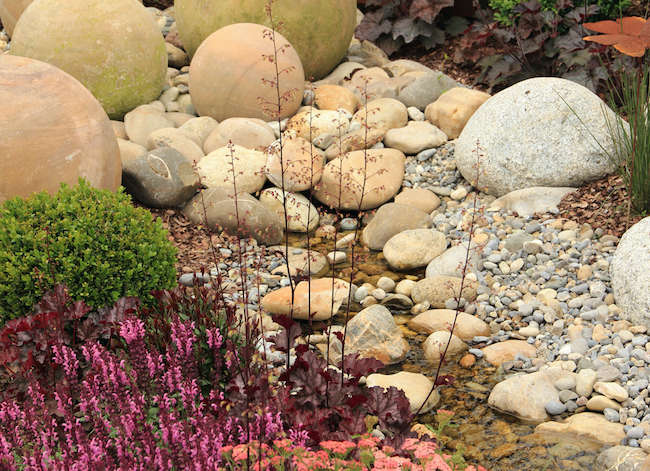We may earn revenue from the products available on this page and participate in affiliate programs. Learn More ›
Yearlong Beauty
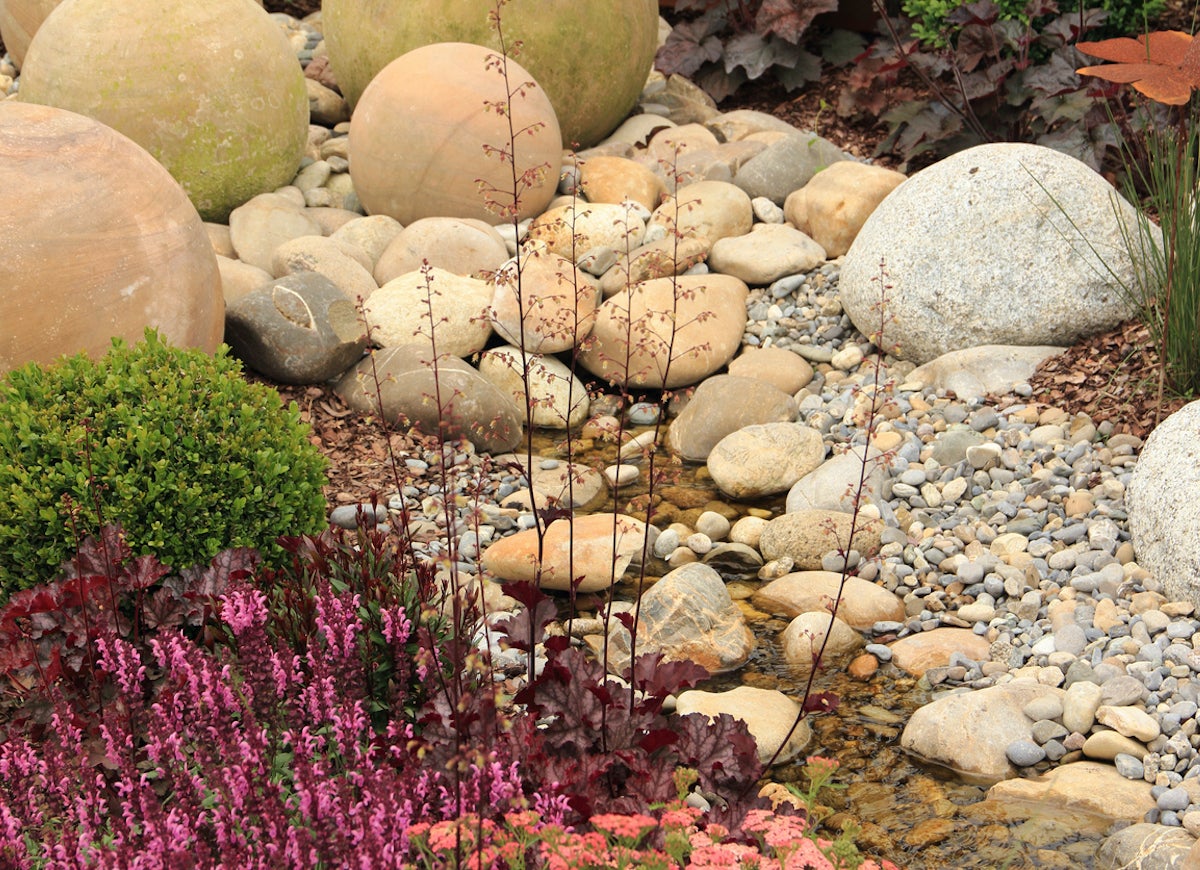
According to NIDIS, a multiagency partnership that monitors drought conditions, 42 percent of the United States is currently experiencing lower-than-normal rainfall. In response to this dry spell, many gardeners are converting formerly lush beds into rock gardens with drought-tolerant plantings.
Rock gardens can vary in size and design, but what they share in common is a hospitable environment for drought-tolerant and shallow-rooted plants. Whether the rocky landscape is natural or manmade, rock gardens are a wonderful blend of eclectic and enchanting colors and textures, due in no small part to a gardener’s choice of plants. Read on to see several stunning plants that can boost your rock garden’s charm.
Columbine (Aquilegia)
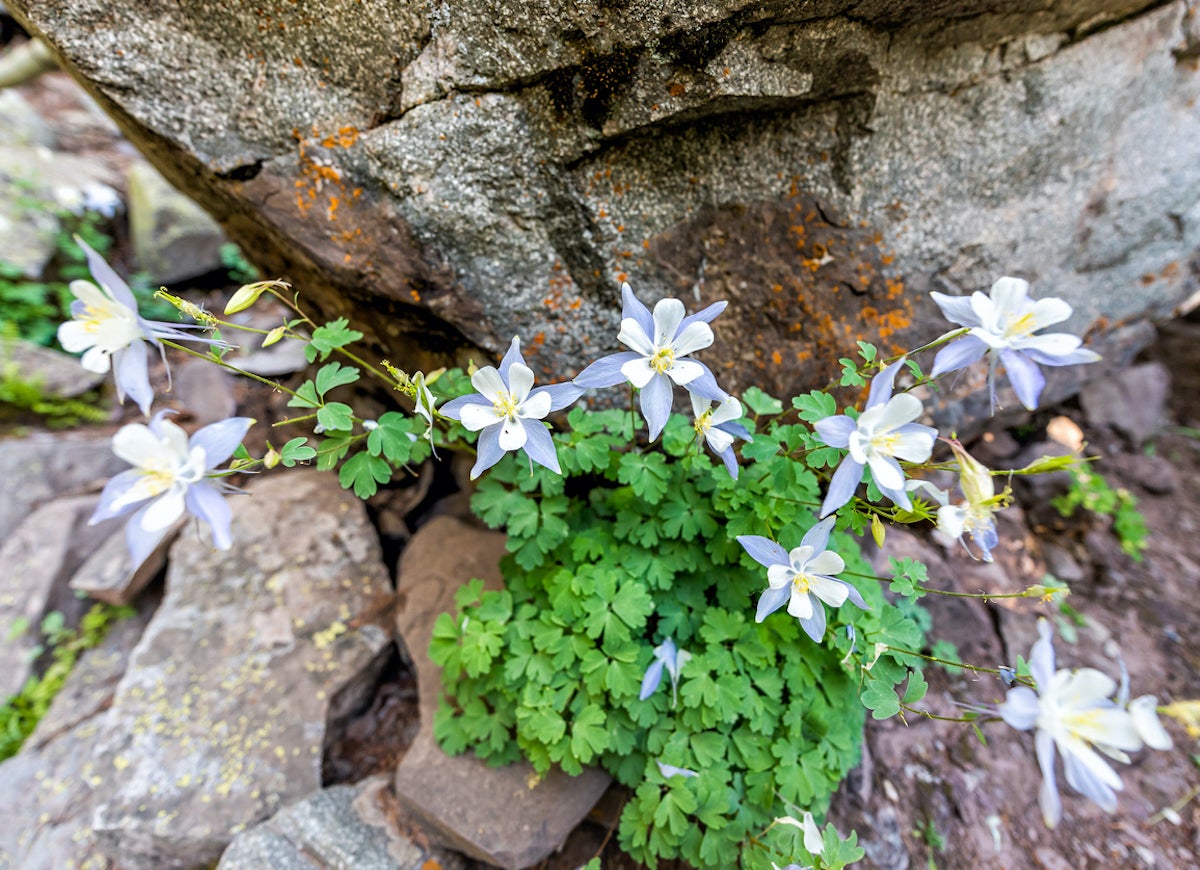
An exquisite herbaceous perennial, columbine showcases a unique bloom with long, narrow spurs. The flowers come in a variety of colors and attract hummingbirds and butterflies. Depending on the climate in which it is grown, columbine can favor full sun or partial shade and requires medium moisture. At 3 feet tall and 2 feet wide, it’s a perfect choice for garden borders. Once established, this wispy wildflower is somewhat drought-tolerant. Cut it back in the fall, and then watch for volunteer seedlings in spring from this prolific self-seeder.
RELATED: Drought-Tolerant Landscaping: Top Tips for a Hardy, Low-Maintenance Yard
Red Creeping Thyme (Thymus praecox 'Coccineus')
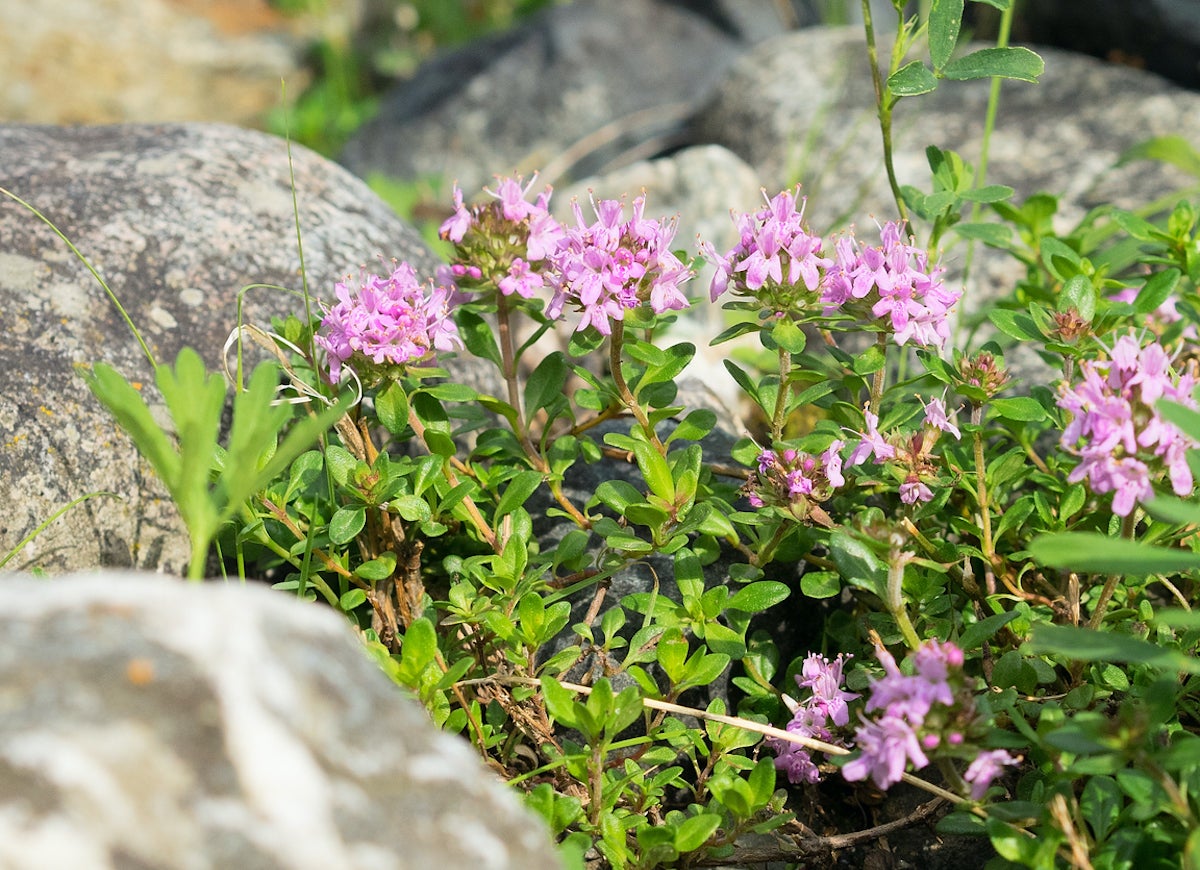
Any rock garden comes to life with the addition of a lush ground cover. Red creeping thyme, known for its ability to endure poor soil conditions, is an ideal carpet for sunny beds. With its delicate greenery, pink blooms, and fragrance, red creeping thyme can be tucked among pavers and along walkways to add beauty and repel weeds, or it can be planted in any sunny space that needs a lawn alternative.
Hens and Chicks (Sempervivum tectorum)
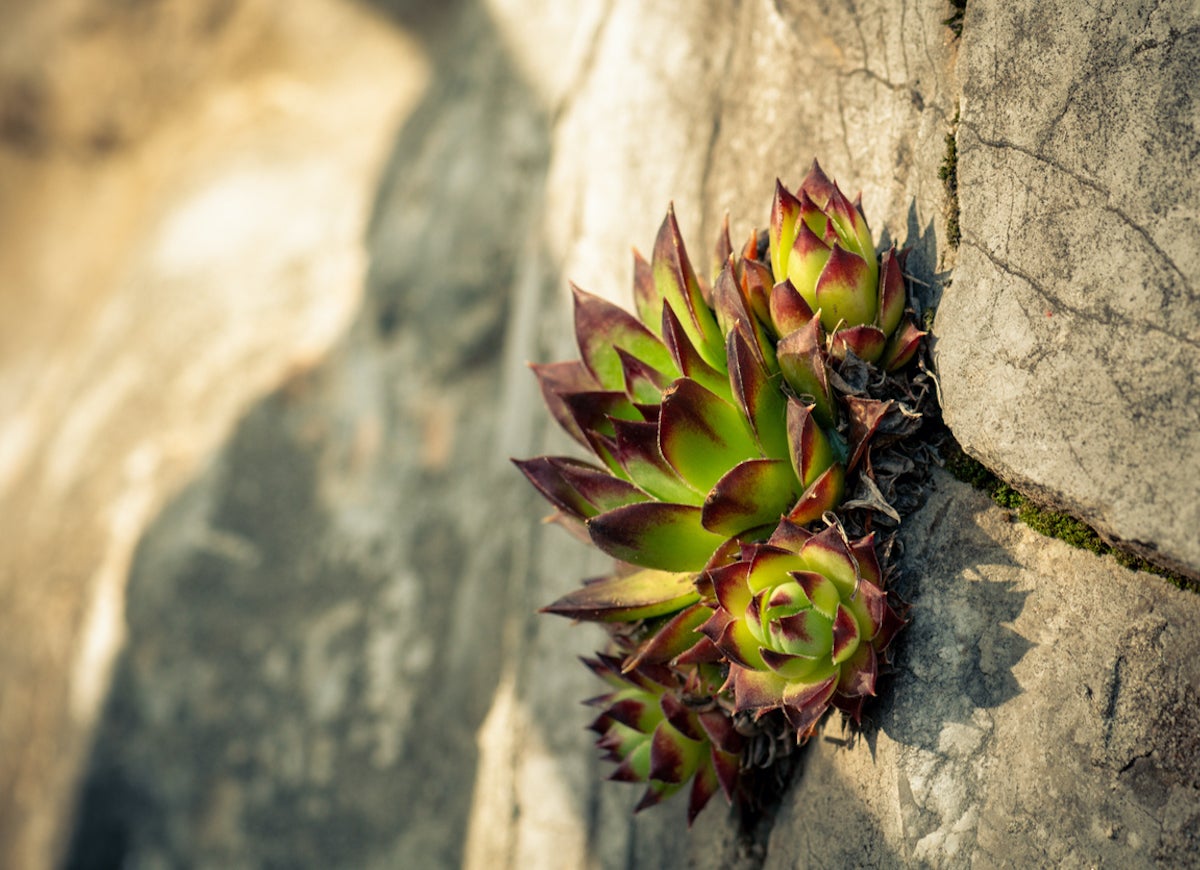
A rock garden isn’t complete without succulents, and one of the most popular options is hens and chicks. With its mossy green clusters of rosette-shaped leaves, hens and chicks can spread up to 2 feet and stand up to 4 inches tall. This succulent grows best in full sun to partial shade, and while it’s suitable as a ground cover, it requires ample drainage. The “chicks,” or offshoots, can be easily transplanted throughout your garden.
Cranesbill Geranium (Geranium sanguineum)
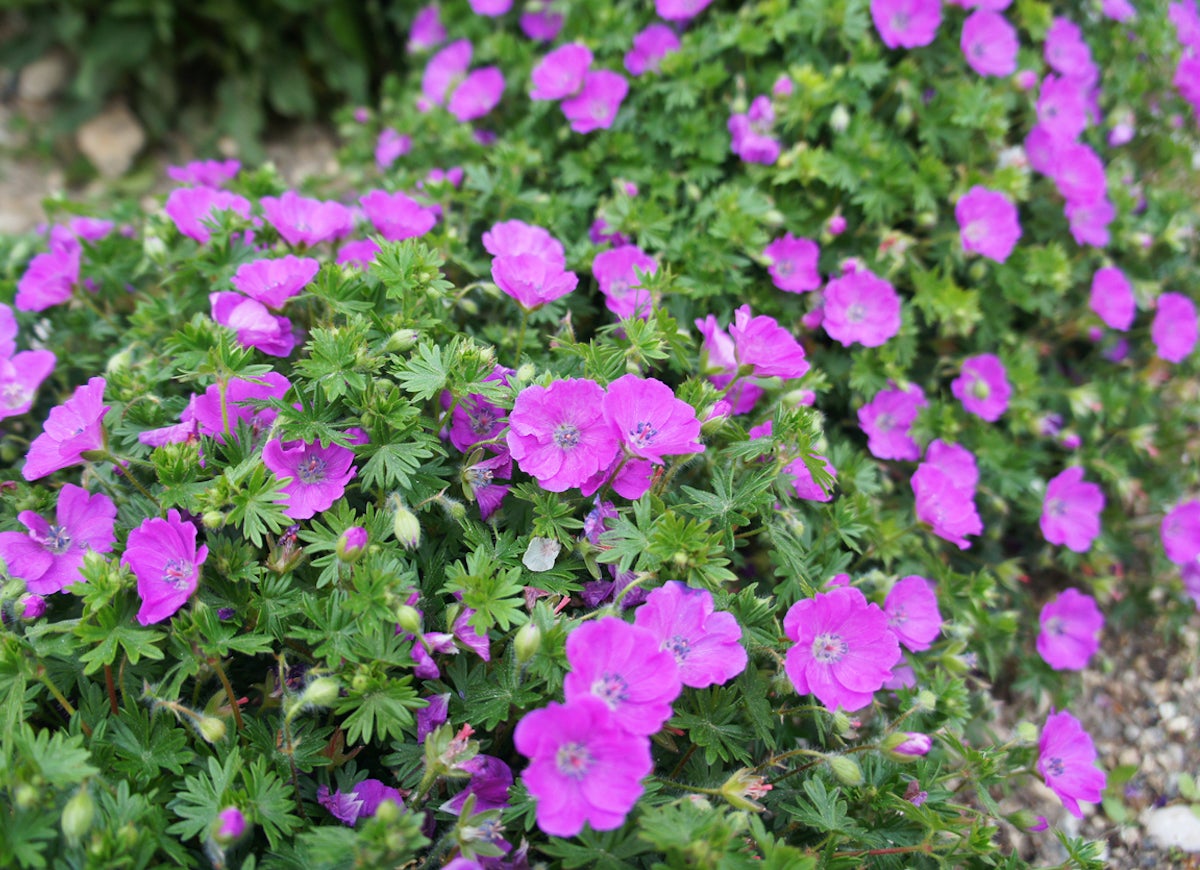
Hardy geraniums are a favorite with gardeners because they require little maintenance. A placement in full sun results in high-yield flowering, but this geranium can also tolerate partial shade. Magenta flowers pop against the green, textured foliage, and the blooms bob and sway, mingling with neighboring plants. While relatively low maintenance, cranesbill geranium thrives with a bit of care: Cut the plant to within a few inches above the ground after it has finished blooming to encourage a second bloom, and divide it every 3 to 5 years when the center of the plant dies back. In return, you’ll be rewarded with flowers year after year.
Blue Fescue (Festuca glauca)
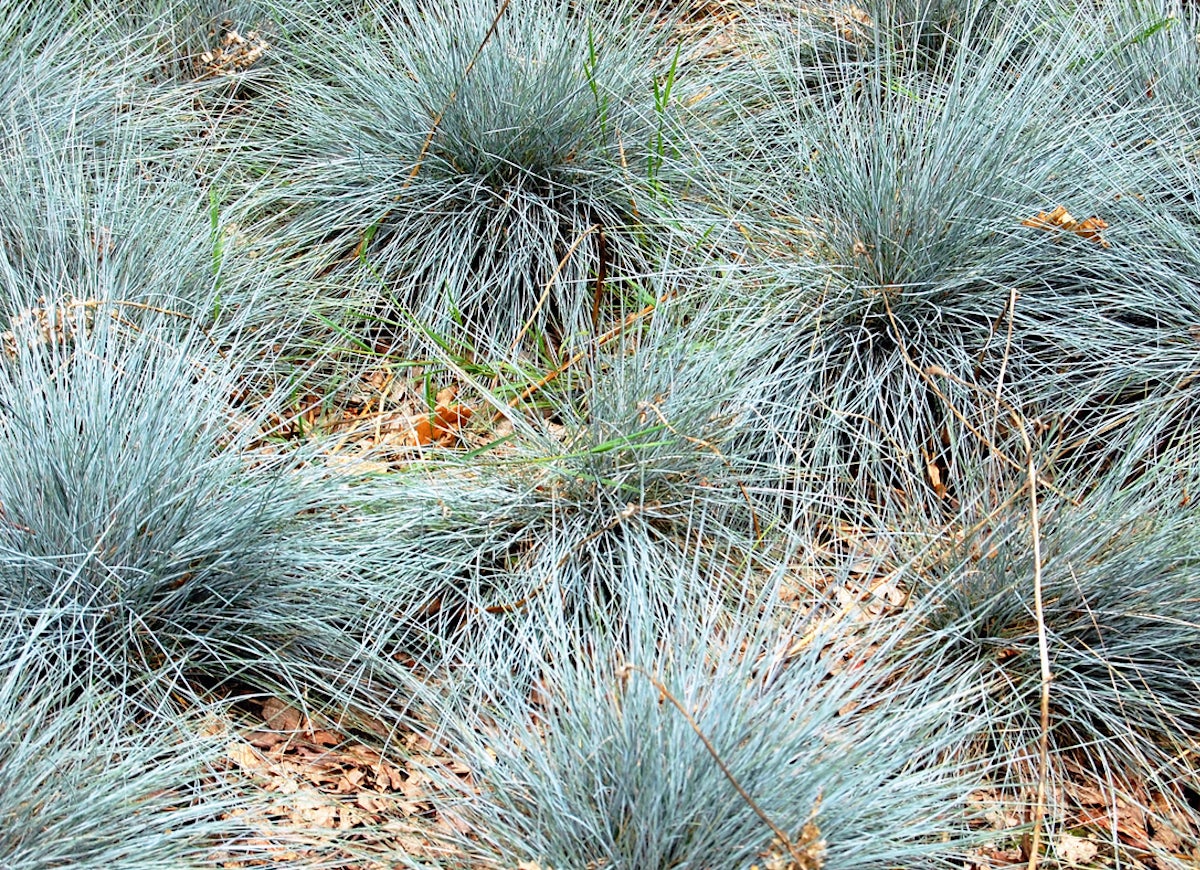
Ornamental grass adds dimension and fullness to a rock garden, and blue fescue is a wonderful option. Its bluish-green color stands out among perennials and makes a decorative splash against stones and boulders. It’s best suited for soil with medium to low moisture. While it prefers full sun, this grass can handle some shade, and it can withstand a mild frost.
RELATED:
The 22 Best Ornamental Grasses for Adding Drama to Your Property
Snow-in-Summer (Cerastium tomentosum)
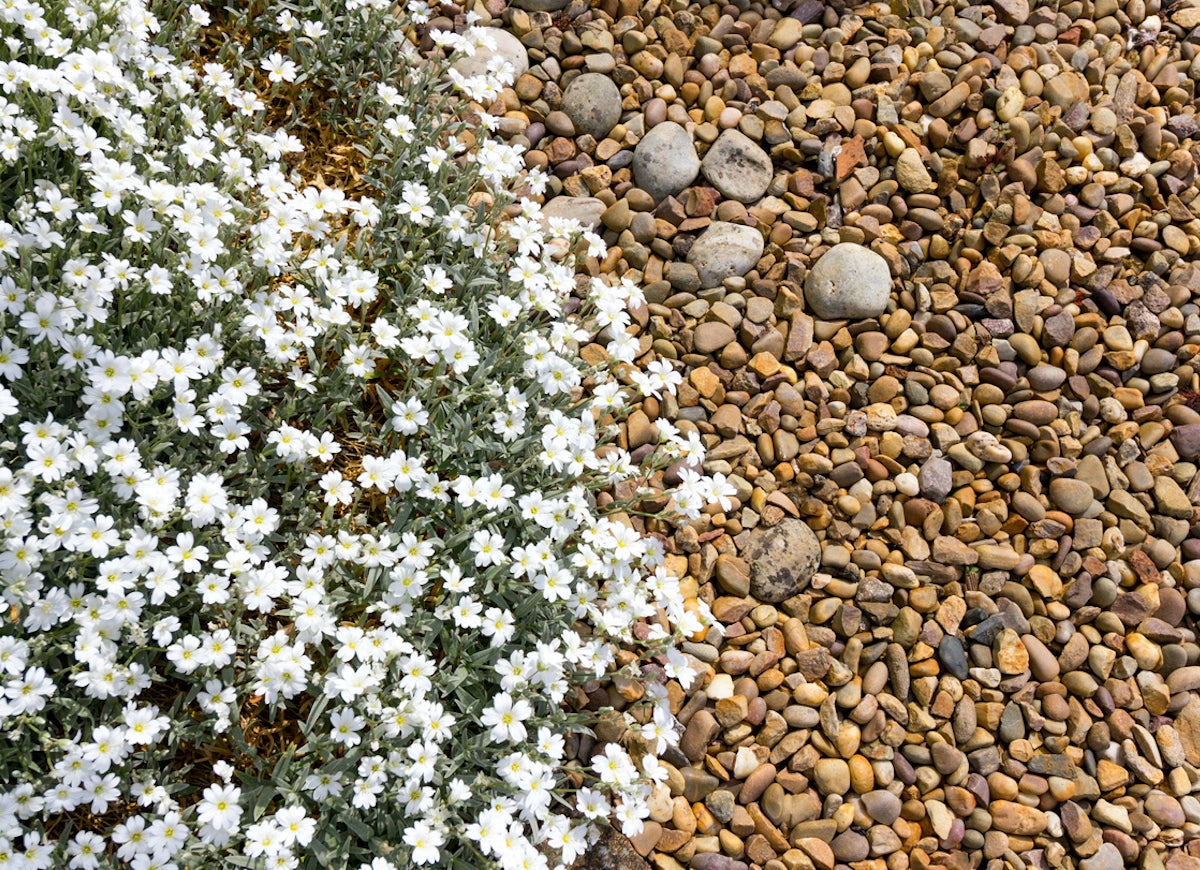
If you want to bring a little whimsy to your rock garden, snow-in-summer is a great choice. It adds beauty along retaining walls or other rock structures, and because it’s self-seeding, you never know where it will sprout in the seasons to come. This low-maintenance perennial ground cover boasts silver-green foliage and bright white blooms in both spring and summer. Drought-tolerant, it requires full sun and good drainage for optimal growth.
Rock Garden Mugo Pine (Pinus mugo 'Rock Garden')
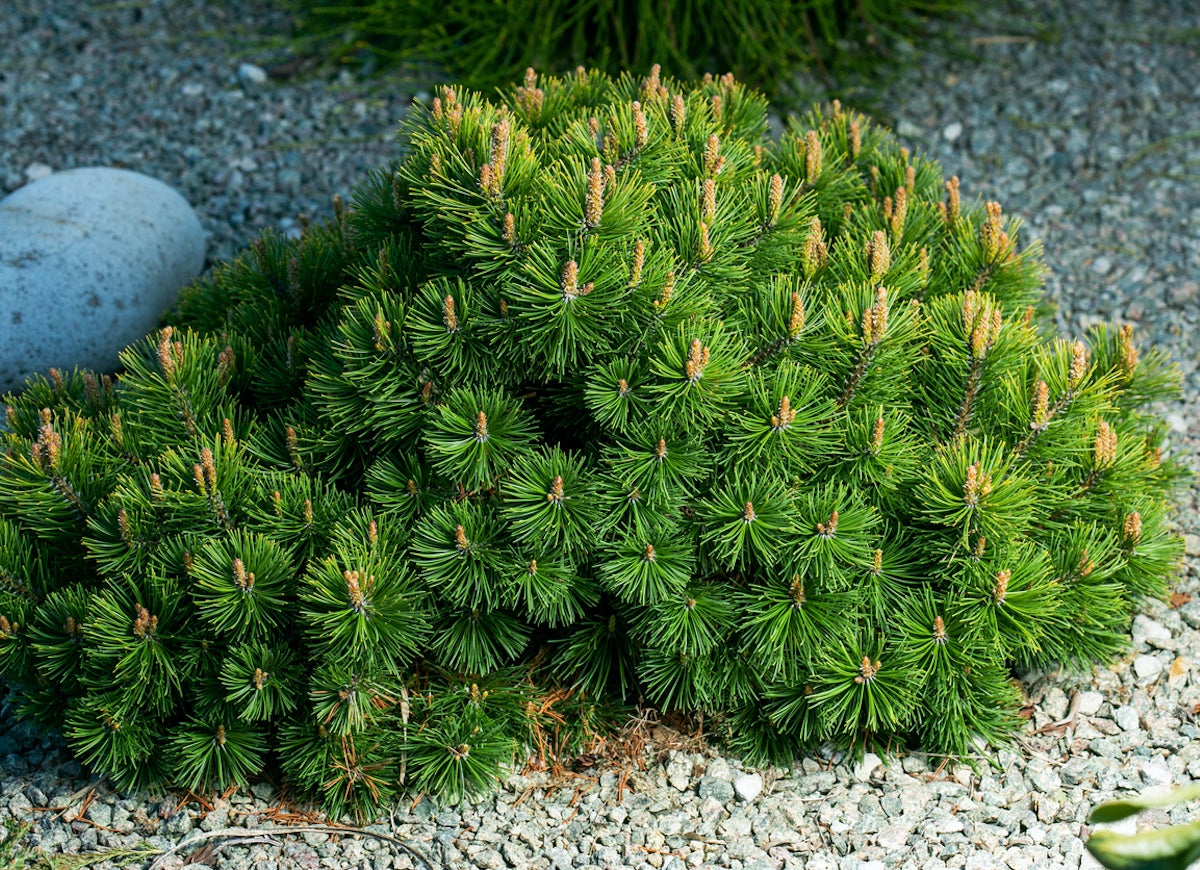
Rock garden mugo pine is a dwarf evergreen shrub that can grow as large as 2 feet in height and 3 feet in diameter. This slow-growing plant holds its rich green color during the winter months and requires minimal pruning. Preferring full sun and well-draining soil, it makes an ideal foundation shrub. If you’re looking for something larger, consider the regular mugo pine, which grows upwards of 20 feet tall and 30 feet wide.
Lavender (Lavandula)
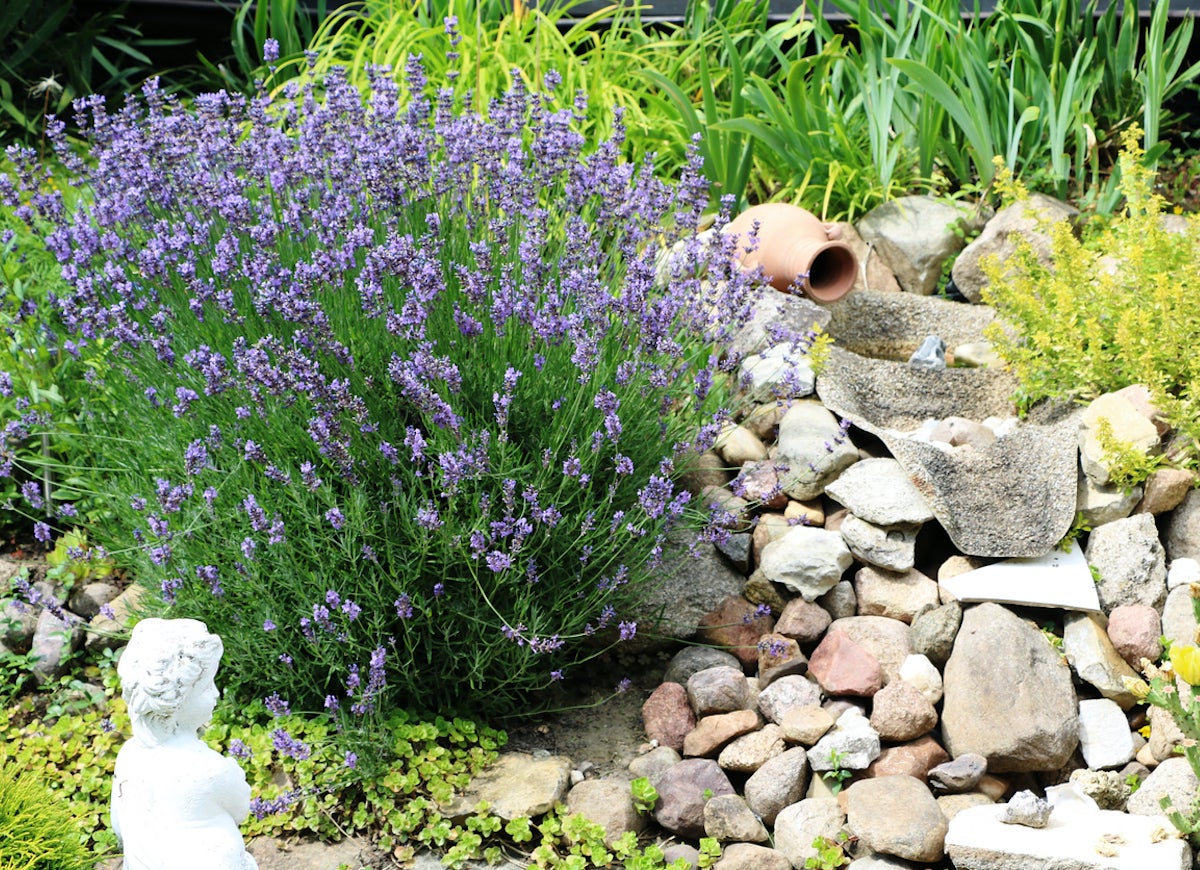
Want to add fragrance to your rock garden? With its heavenly scent and storybook-worthy blooms, lavender is a garden classic. Suited for hot weather and poor soil, it’s ideal for rocky landscapes, and it grows well on its own or in combination with other shrubs and ornamental grasses. Lavender requires full sun and medium to dry, well-draining soil. Harvest it for use in potpourris or teas and you’ll find it as welcome inside the home as it is in the garden.
Purple Fountain Grass (Pennisetum setaceum 'Rubrum')
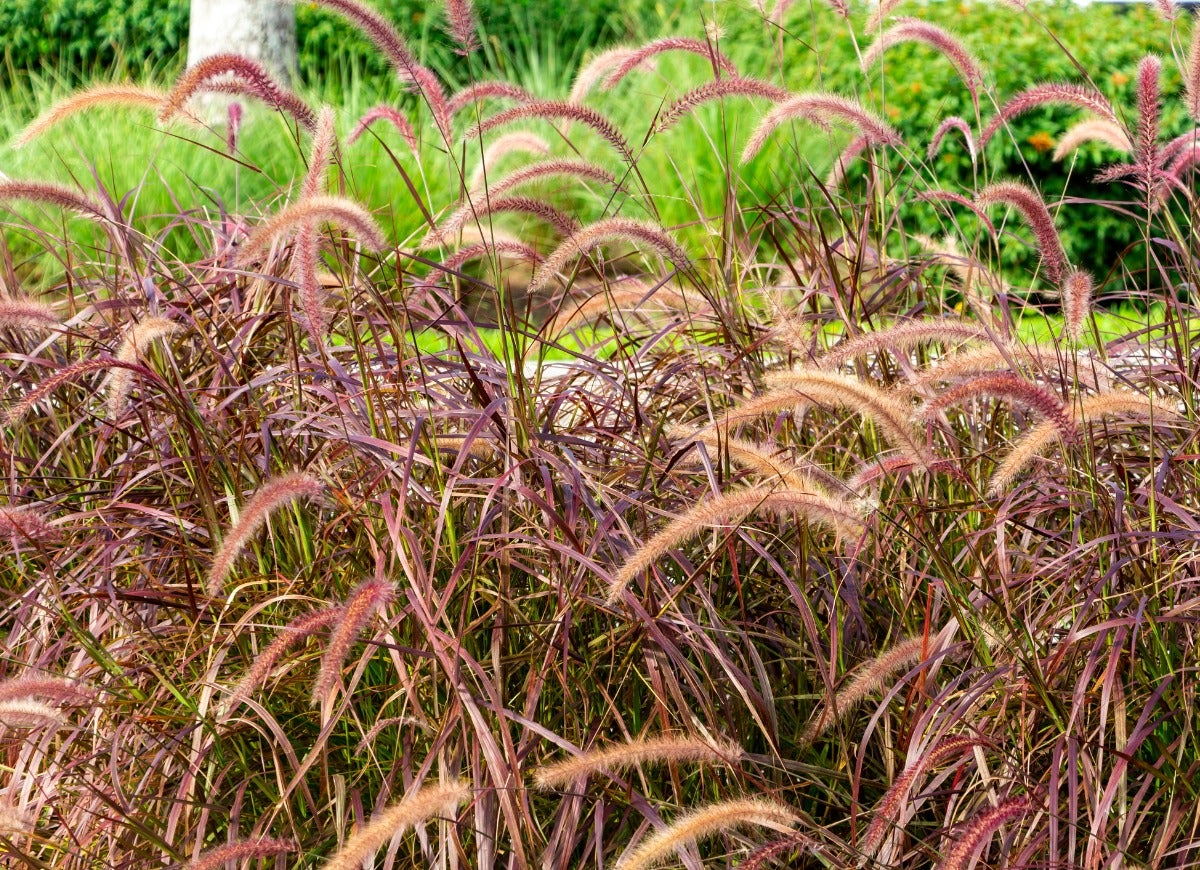
If you’re looking to make a statement, consider planting purple fountain grass as a focal piece in your rock garden. This ornamental grass grows 3 to 5 feet tall and thrives in full sun and medium- to low-moisture soil. Its vase-like shape seems to explode with long, thin green and purple leaves crowned with bottlebrush plumes that transition from purple to tan in early fall. Both low-maintenance and noninvasive, this perennial grass will continue to wow for years.
RELATED: Weathering Water Restrictions: How to Save Your Landscape From the Effects of Drought
Irish Moss (Chondrus crispus)
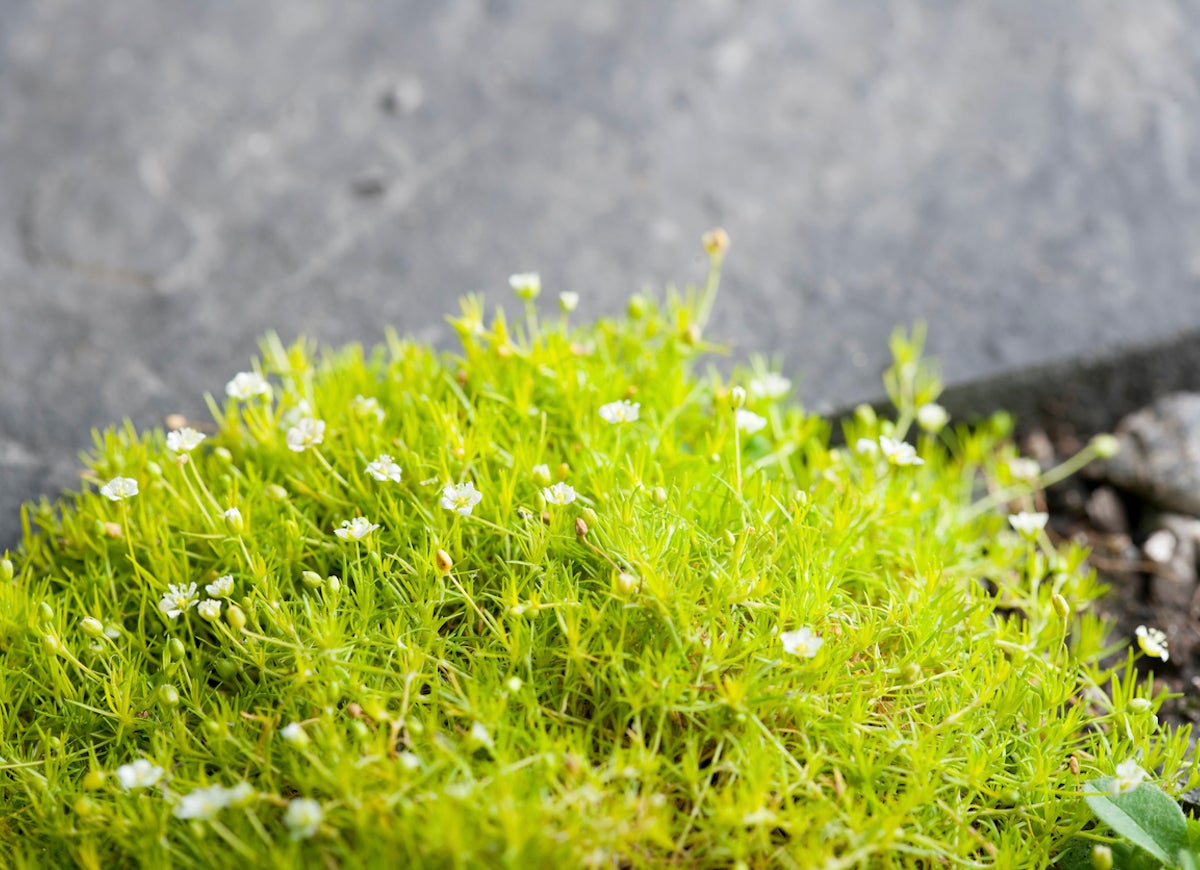
Add a splash of lively green to your rock garden with Irish moss, a ground cover that thrives in full sun but is not suited for intense heat. The plant requires regular watering, so place it in a location that’s easy to reach with a hose or watering can, and keep it away from succulents and other plants that can suffer from overwatering. Harsh heat can cause the plant to turn brown, but fret not: It will return to its original luster in the fall.
Sedum Autumn Joy (Hylotelephium spectabile 'Autumn Joy')
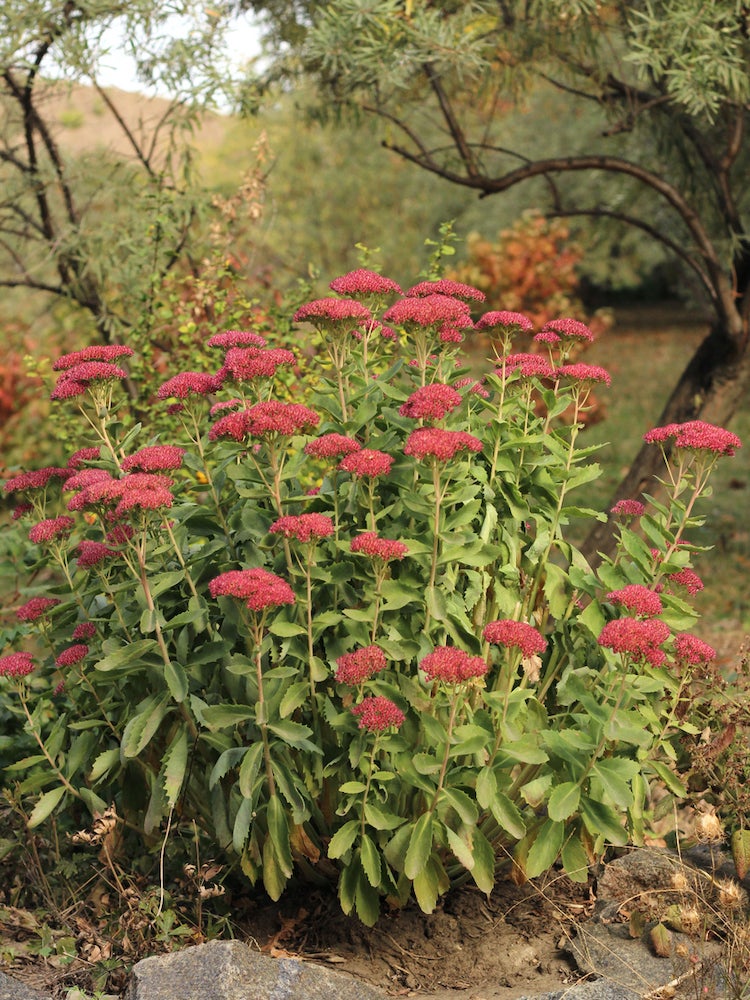
The deep rose blooms of this stunning perennial will bring ambience and softness to your garden. With its height and density, sedum autumn joy is a suitable substitute for a shrub. This bee- and butterfly-friendly perennial requires full sun, average moisture, and well-draining soil. A slow grower, the succulent blooms in late summer through mid-fall. Divide the plant every 3 to 4 years to maintain its compact appearance.
Ajuga Black Scallop (Ajuga reptans 'Black Scallop')
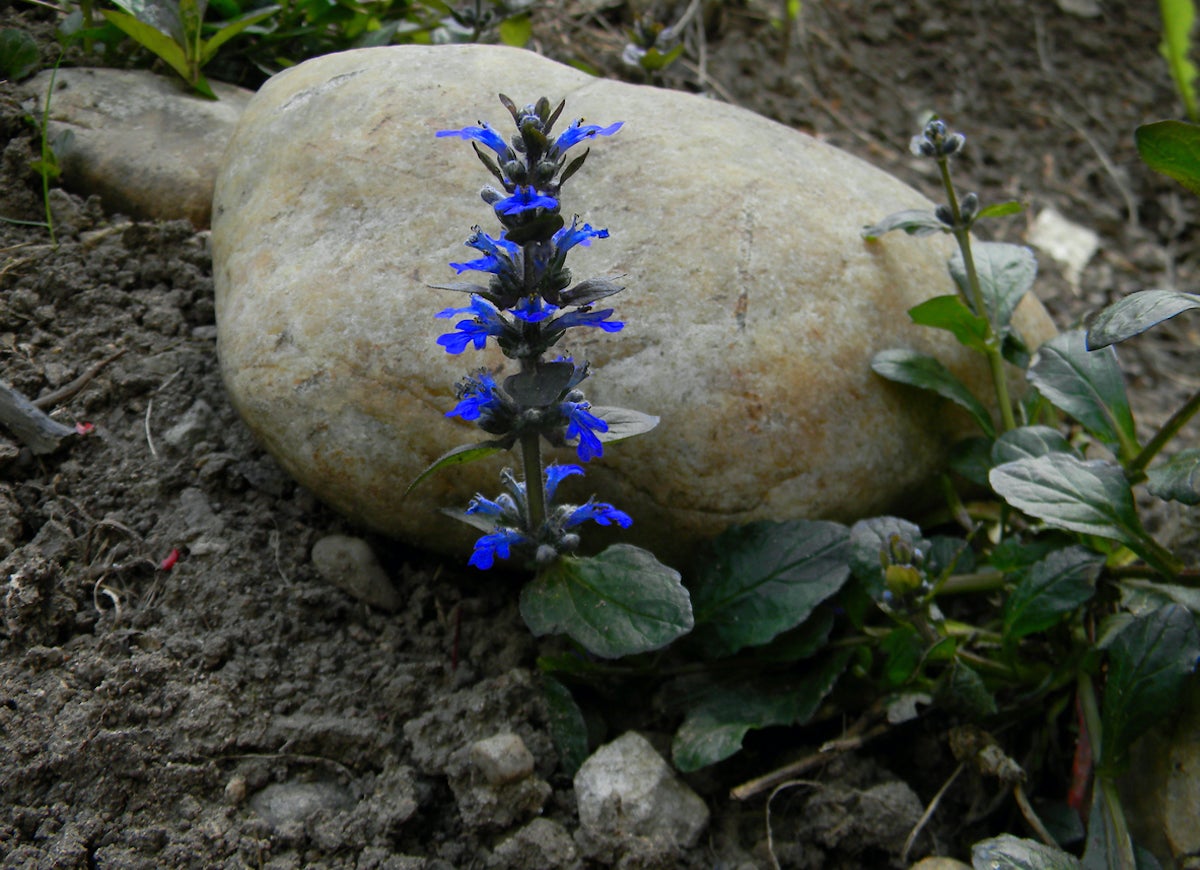
Provide some contrast to your garden’s variations on green with this darkly colored evergreen ground cover. The foliage of ajuga ‘Black Scallop’ is a distinctive combination of gloss and near-black hues; it thrives in sun but fares well in shade too. Blue to purple blooms emerge in spring and attract butterflies, hummingbirds, and bees. Average moisture and well-draining soil keep the plant going strong all year long.
Ice Plant (Delosperma cooperi)
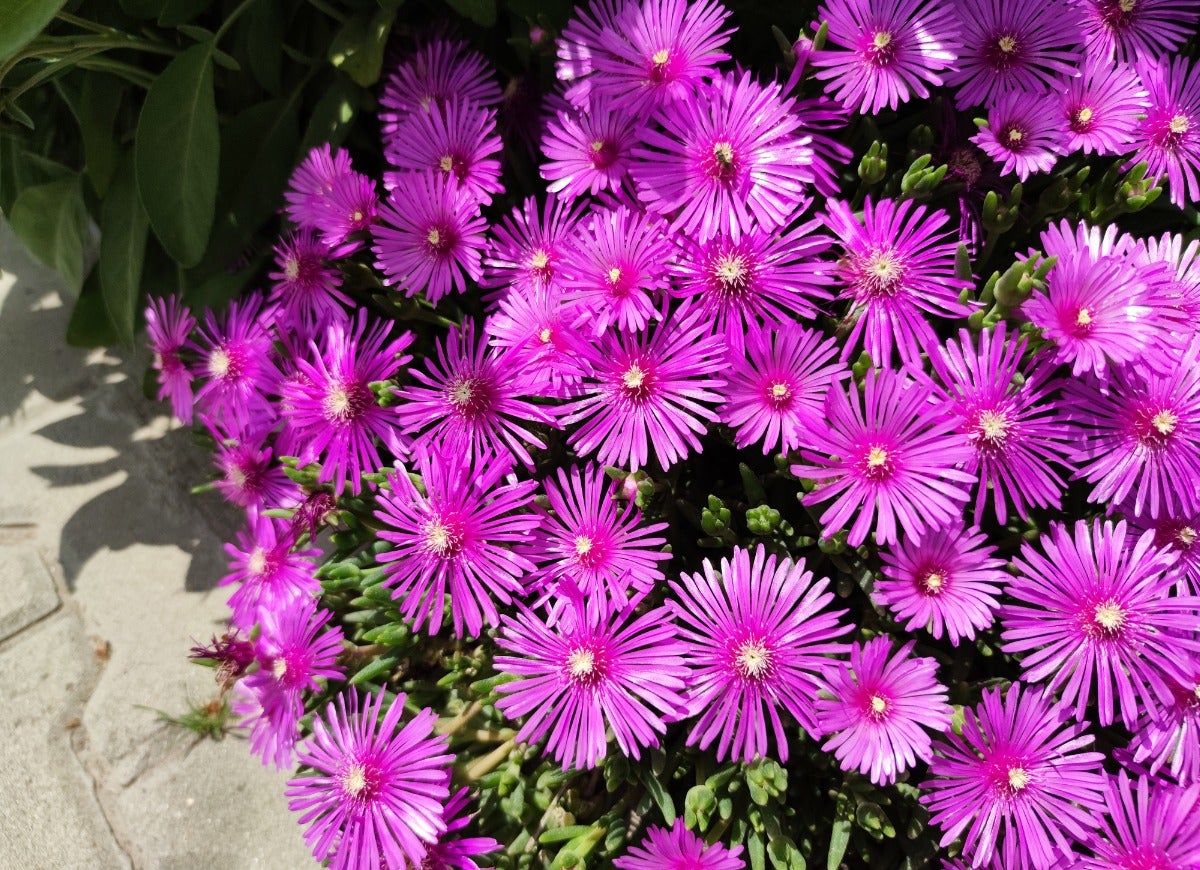
A heat-tolerant import from South Africa, ice plant is a vigorous perennial ground cover that does best in full sun. It looks spectacular in a rock garden, sprouting up eagerly between the stones and trailing attractively over them as it shows off a generous number of purple, daisy-like flowers. It grows just 4 to 6 inches tall but spreads vigorously. This drought-tolerant and heat-tolerant plant does well in USDA hardiness zones 4 through 9. California gardeners are cautioned to avoid ice plant, which has become invasive in that state.
RELATED: Why You Should Care About Extreme Drought in the Southwest, Even if You Don’t Live There
Pink Skullcap (Scutellaria suffrutescens)
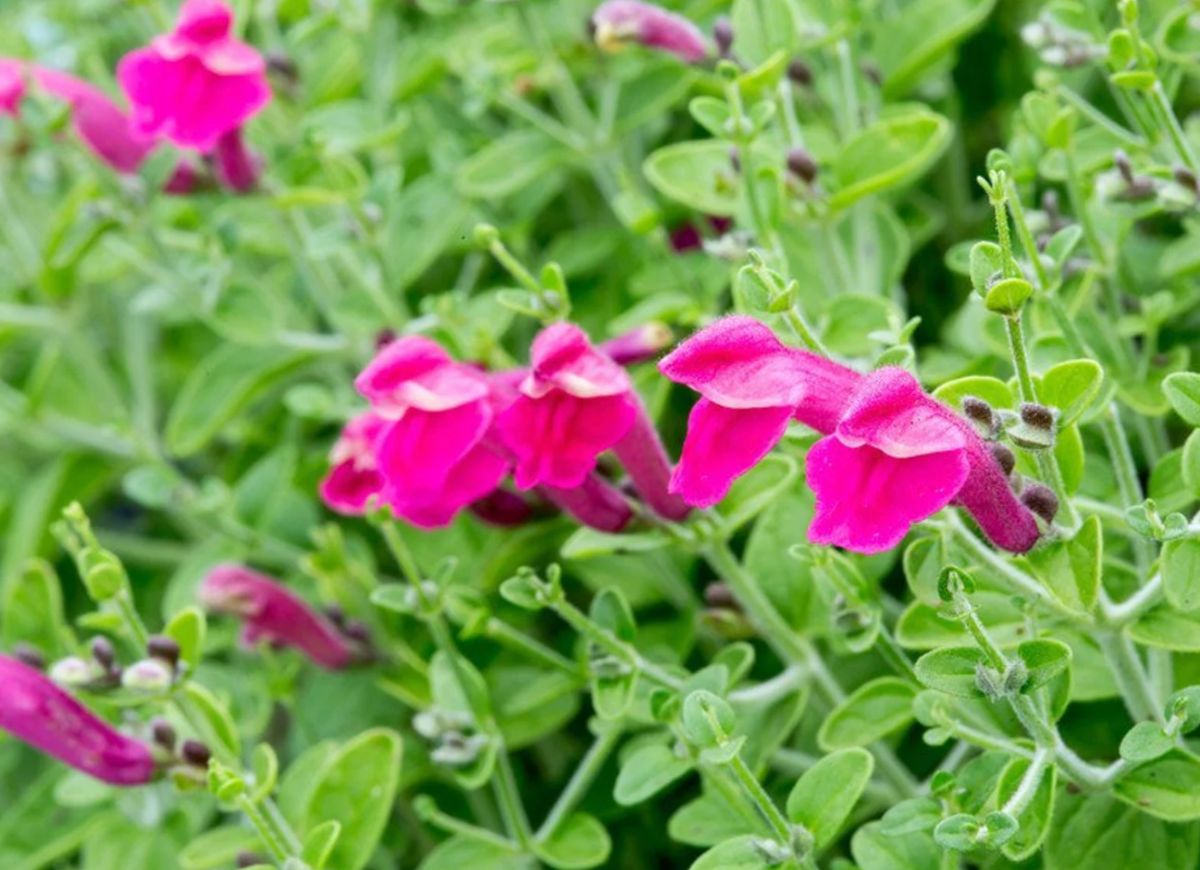
If you’re looking to add a compact shrub to your rock garden, consider pink skullcap. This plant’s delicate beauty—tiny gray-green leaves and small, tubular brilliant-pink flowers—contrasts nicely with large stones, creating a beautiful array of textures and colors in your garden. Native to northern Mexico, pink skullcap has adapted nicely to the Southern United States and is winter hardy to USDA zone 7. It grows 6 to 9 inches tall and 12 to 18 inches wide and while it prefers full sun, the plant will tolerate some shade.
Gopher Plant (Euphorbia rigida)
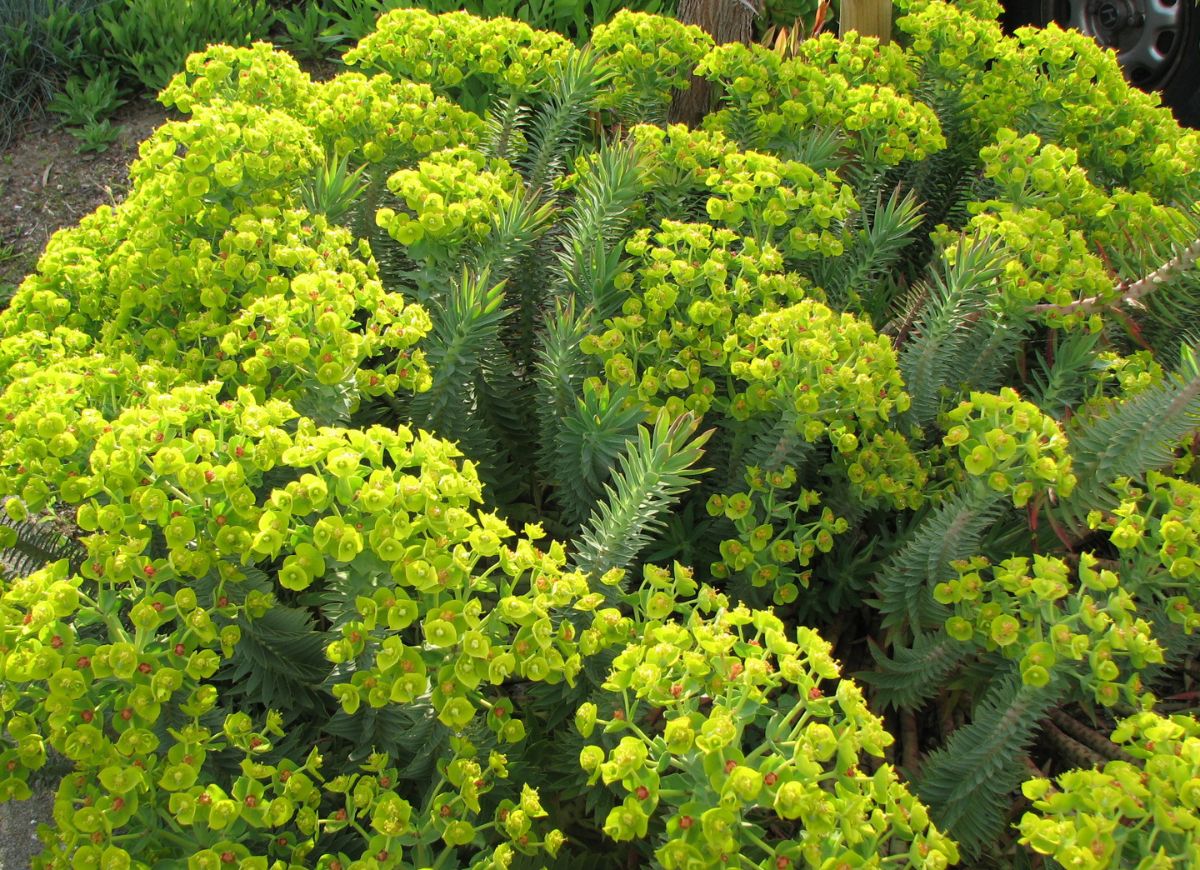
Succulent-like gopher plant dazzles with gray-blue foliage and yellow flowers, adding a burst of intrigue to a rock garden. It’s a shrubby plant that may also assume a sprawled habit, flopping gracefully across the stones in your sunny garden. Those in the South will be happy to know that gopher plant survives winters, while northern gardeners may need to treat it as an annual. Bees like this plant, which is drought-tolerant and needs the well-drained soil that’s typical of rock gardens.

A DIYer’s Guide to Replacing Flooring
Update the look and feel of any room by replacing old, worn-out flooring. These products and straightforward steps make it easy enough for any handy homeowner to do.
